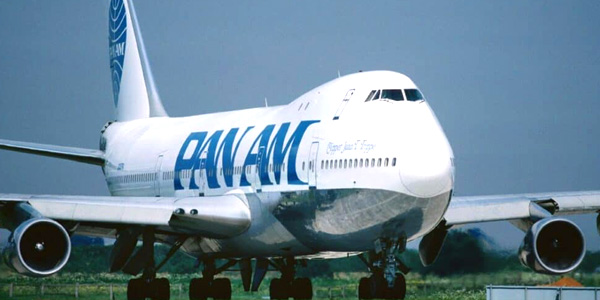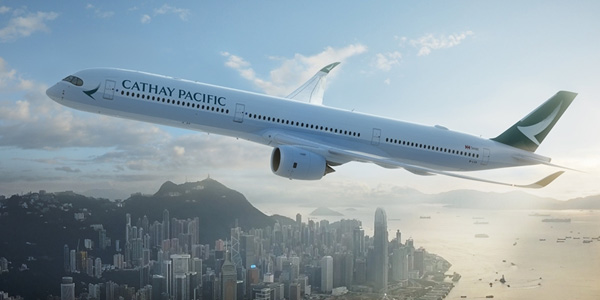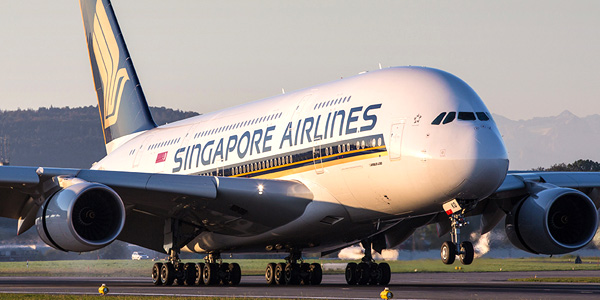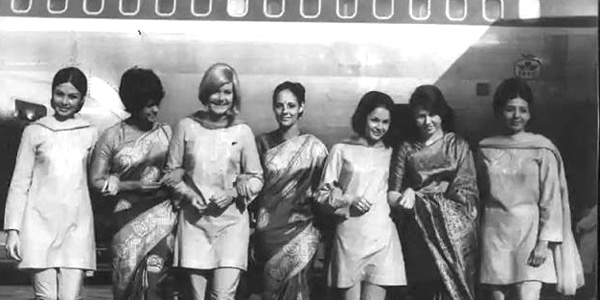|
OPINION Will airline bailouts fly and should pride trump profit?
SEE ALSO First Class Seat Survey | Business Class Seat Survey | Small Airlines Guide | Airbus vs Boeing | Frequent Flier Programs | B737 MAX-8 safety issues | Round the world fares | Top Asian hotel reviews | Covid-19 leader forum | Covid-19 Travel Restart 
PanAm, the global trend-setter, planted the American flag all around the world until a series of setbacks brought about its collapse in 1991. It was allowed to fail and its routes were gobbled up by leaner competitors. AS AIRLINES and hotels with backs to the Covid wall plead with governments for help it is not unusual for nationalist fervour to override economics in the search for quick fixes with demonstrations of muscular resolve. In many cases though, this would be folly. When PanAm’s overreach caused the serial flag-planting airline to collapse under the sheer weight of its network (with slowing passenger demand, rising fuel cost, deregulation, and the haunting tragedy of the 1988 Lockerbie bombing) the airline was allowed to go under. The Gulf War sounded the death knell for this spirited campaigner that had pioneered passenger air travel in America as well as transatlantic and transpacific routes, and made round-the-world flight a household aspiration. By December 1991 the airline was no more. It filed for bankruptcy. United had already bought the transpacific network along with the Narita hub and Delta acquired some choice transatlantic morsels. No knickers were in a twist. Send us your Feedback / Letter to the Editor The US government did not step in to save the floundering beast, which had had a remarkable run since its historic 1927 mail hop linking Key West, Florida, with Havana. In many ways, President Jimmy Carter’s Airline Deregulation Act of 1978 simply hastened the end as competition for a slice of the sky mushroomed. That was Keynesian capitalism at its most ruthless: the survival of the fittest, the most efficient, the most in tune with consumers and with a price and product to match. {A few years ago American Airlines CEO Doug Parker chirruped, “I don’t think we’re ever going to lose money again.” Where has all the money gone?... Fast-forward to 2020 and suddenly airlines (and even hotels) are lining up for bottomless government largesse. Why should governments come to the aid of capitalist behemoths that have simply worked in their own interests from inception? 
Cathay Dragon (formerly Dragon Airlines) was meant to be a feeder addition to the Cathay network. The marriage never worked and, following Covid, by October 2020, the airline was gone. One answer could be that governments and airlines share common ground – and national pride – in the establishment and maintenance of air routes that encourage economic activity and tourism. In several Asian countries there is usually one dominant airline that has grabbed the mantle of ‘national’ carrier and it is this appellation that drives the noisiest bailout clamour. Air routes look impressive on a world map with all the red lines neatly converging on your capital city. Small wonder a country might feel like a ninny if after all that chest beating there’s no national airline to fly you to the G20 meet. There is a profound difference between Japan Air Lines and Air Koryo. Yet, if it’s a tossup between prestige and profit, the latter must prevail. Or should it? The Asian landscape is riddled with scenes of feebly flapping national carriers from Air India and THAI Airways International to former powerhouses Cathay Pacific and Singapore Airlines. The Thai government is stepping in with a 24 billion baht bailout for THAI and Bangkok Airways (as well as several low cost carriers including Thai AirAsia) and the Hong Kong government pledged US$3.87 billion for Cathay. The SIA Covid-rescue entails a monstrous US$13.27 billion while in the subcontinent, Air India, once the pride of Asia with its iconic moustache-twirling maharajah, is up for sale though buyers remain coy. But trumping all is the lobbying by seven major US airlines to secure US$50bn in aid before December lest they go out of business entirely. This is as much as the government marshalled for the General Motors rescue in 2009 earning the company the blushing sobriquet, ‘Government Motors’. GM repaid most of the money and now the carmakers are back praying for a US$2 trillion lifeline. The numbers are staggering. Do bailouts make sense? Airlines have had a good long run pre-Covid with dropping oil prices and super profits. A few years ago American Airlines CEO Doug Parker chirruped, “I don’t think we’re ever going to lose money again.” Where has all the money gone? Profits did not equate to lower fares or better service for air passengers who for the most part had to make do with slimmer seats, more crammed rows, fewer exits, smaller toilets, less food selection, trimmed coffee-tea service, and reduced carry-on privileges. In November 2018 The Washington Post jocularly noted: “On some of the newer planes flown by American, Delta and United airlines, the bathrooms in coach are just 24 inches wide. For comparison, that’s roughly the width of the average dishwasher or the size of Kim Kardashian’s waist.” 
The SIA Covid-rescue entails a monstrous US$13.27 billion infusion . The government is determined to keep its national airline solvent and afloat. When it comes to airlines, does pride trump profit? Cathay Pacific’s 21 October announcement to kill Cathay Dragon (apportioning China and Asian routes to CX and its low-cost HK Express) has provoked much hair pulling but, despite the human tragedy inherent in any such epic closure, this was inevitable. It had never been a tidy marriage. Hong Kong street protests over 2019 made Mainland operations increasingly sticky and Covid was the final straw. Cathay’s excision of almost a quarter of its workforce and the slashing of inventory could be the way of the future. Emirates, with a US$2bn bailout from the Dubai government, is also considering massive job cuts that could well exceed Cathay’s. The airline has pressed its costly A380s back into service and is offering free Covid treatment guarantees to passengers. All this adds up. Bailouts come with several problems. They do not stop systemic haemorrhaging if the management style and company structure is inadequate and careworn or when the environment abruptly changes, as with Covid-19. Cathay might get to operate less than 50 percent of its fleet during 2021. This is not the stuff of sanguine revenue projections. Government grants simply encourage dysfunction. It is argued, and rightly, that firms must go through the bankruptcy process to emerge lighter, chastened and willing to restructure in an efficient manner. THAI has been wallowing in the slough of despond for a long while and has been repeatedly bailed out yet cured of none of its bad habits or poor service. This is the airline that in the eighties set new benchmarks for in-flight pampering with its ‘Smooth as silk’ tagline and for a while even ventured to fry eggs aloft for business class passengers in the days of the mercurial TG President Chatrachai Bunya-Ananta. Air India has been a classic case of politicisation, interference, and internal rot, simultaneously propped up and ruined by the government. Its accumulated debt and the 2007 merger with the domestic Indian Airlines have created an unwieldy and inefficient combine. Hotels are hard hit too but lack the “national” cachet to attract sufficient government interest which, when engaged, is focused more on preserving jobs than the brand. While Marriott looks to the US for a domestic recovery, Accor is focusing on Europe (with its strong train network, travel bubbles, and a concerted approach to Covid) and everyone is intently watching China, where domestic travel has all but filled once-empty hotel rooms. For Marriott, well over 90 percent of its business in China (as well as the USA) comes through the domestic market. That buoyancy may just tilt the balance one way or the other. 
Air India crew - pictured here in the glory days late Seventies - present a different picture today as the airline seeks reluctant buyers to take on its astronomical debt and go private. After astronomical buyouts and mergers (remember, Marriott splashed out US$13bn to acquire Starwood), hotel behemoths are at full stretch. There is enormous vulnerability but flexibility too. Larger groups can shuffle reticent guests down from luxury rooms to cheaper digs and keep business within the family. Smaller independent hotels do not have this facility and many are up for sale. No bailouts are coming their way yet in many respects, these are the products that deserve to succeed with their innovative approach, design innovation, local flavour, and friendly service. These are the hotels that actually give something back to the community and reinvest locally rather than scoot off to the Virgin Islands for a tax holiday. As hotel investment companies decide on a future course, managing real estate or growing franchises (something Hilton thrives on), InterContinental appears poised to join the Accor fold (a seemingly good fit with IHG’s strengths in North America and Accor’s hold on Asia). Such a merger would create the world’s biggest hotel chain with a combined value of almost US$18 billion and over 1.6 million rooms. Is bigger better? Or are we simply headed for more bailouts? Send us your Feedback / Letter to the Editor Previous Columns2020 The Best of the DecadeWho will save Asia's hotels?Why we need more spaceWhy Covid is a big dealWho will give the first hug?Life of I, with a PumaThe world will be as oneWhy flu is nothing to sneeze atPlaying chicken in TaipeiSecret of powerless flight
2019 Broken bonds, dying brandsLately, the strangest feelingHow safe our skies?Is Hong Kong safe?Death of loyaltyNo rest on EverestBoeing fix leaves it in a fixCathay tries the limbo rockB737 MAX-8: accident by designI'm looking through youEveryone can auditionWhy is everyone screaming?
2018 The Sleep/Service equationThe Disappearing GMEco travel: less is moreBest of the restHow to win an awardPlane truth about punctualitySweet summer sweatWho's Top Dog?Don't unpack my bagPicture perfect holidaysTale of two women, or threeSomething in the air
2017 Hello, any humans here?An Aye for an AyeTravel, the fear factorHow to turn blue seas greenPolls, planes, queuesBlockade by blockheadsShanghai, back to the futureNo lap dance aloftFriendship is a rocketWhy I really need a dateIn the ICU with Legionnaires
2016 Give Bangalore its dueRoom at the VPN?How big can be beautifulWhy it's brand on the run Premeditation and physics Samsonite in a snit Bogged down by blogsRight brain has the right stuffWho's the fairest of them all?How have you been lately?Got a Black Magic Woman The rebranding of Asia
2015 Smoke gets in your eyesThe devil beaters of Hong KongThe lure of InstafameYes, still number oneStill tripping up onlineBetter late than neverCan you read bar codes?Domo arigato misuta robotoFast and furious - 2Terminal Man – the true storyHow bad ads kill good onesA matter of time
2014 Are you kidding me?Time to face the factsThe decline of reclineArt of hitchhikingShot out of the skyLies and statisticsBottoms up for goldShanghai surpriseNow, fake festivalsWhy ghetto is goodFrequently flummoxed flyersLaughing to the exits
2013 A matter of prideSpeak and it shall be understoodLet's go phishingAsia's best travel brandsBad scrambled eggsHow to pick a happy flightThe Wild Waist aloftClicks come a clatteringBrand on the runThe unfair fares affairSafe on cloud nine?Man-eaters of Mumbai
2012 The fine art of goodbyeStay fit or fake itMore than wordsWhy hotels and pigs can’t flyTo B or not to B737Are you being hacked?Snap-happy hounds bewareDelhi daze in springtimeLet's celebrate with KittyHide your prying eyesPilot project for beginnersGreen flights of fancy?
2011 The art of arriving lateWhen life drives you pottyAirports, awards, and alarmA fright for sore eyesDry skin wet eyesBack to the Tunnel of LoveWhy fearless flyers won't flee feesMore wind in the hairTravel tremors after JapanThe case of the intact bagsEnd of the OTA-man empire?A picture says a thousand words
2010 Only Engrish spoken hereVoices in the skyA tale of three airportsWhat's in a brandA big bite of a bad AppleNow haste to the hustingsJust 400 homicides and all's wellNo sex please, we're BritishSome minor details aloftHighway to the heavensYou look radiant darlingGood info a needle in a haystack
2009 Please watch that safety drillA classic cycle folderolUtterly eggcentric behaviourThe price is rightFlashing in public is a crime[Offset] my kingdom for a horseYour cash or I'll sneezeThe greening of the worldDo broccoli need passports?Could I see your profile?Great Scott! Empty seatsTravel in an age of terror
2008 There is no free lunchAnother Night in BangkokBeatings on the beachTravelling with Teenage KidsWhither Wi-Fi at 30,000ft?Are you locked in the toilet?Charge of the Flight BrigadeAcross the UniverseBaby it's cold outsideWhy I'm dying to travelA key questionGorillas in the mist
2007 Confounding customsWhen blackmail worksBy taxi through AsiaA really cheap dateMake a meal of itTales of two teethPutting curbs on carbsDial R for rip-offThe New Math aloftWhy boutique is bestAre you terminally mad?Heavy question, ladies
2006 The secret of good sleepJust bring Pluto backA fluid situation aloftWhy Friday's the bestNothing but the truthGone in 60 secondsJust use your imaginationFree flights for allIs your travel in vein?Pet peeves and solutionsViral travellers welcomeYes it's safe to step out
2005 A passage to IndiaIt is a "brand" new AsiaThe show must go onCriminally good holidaysThe accidental touristIt's a free rideSleep tips for the roadI'll follow the sunA good pillow fightA bridge too far?World's safest spotsThe need for speed
2004 Small is beautiful, sometimesBumming around AsiaSamsonite and DelilahJust one good bookSpace, the final frontierExtreme Travel for Real MenJust grin and bare itUnfazed by phraseHoney, I Shrunk My BrainMiss World to the RescueWhen things go bumpTo catch a croc, in Hongkong
2003
NOTE: Telephone and fax numbers, e-mails, website addresses, rates and other details may change or get dated. Please check with your dealer/agent/service-provider or directly with the parties concerned. SmartTravel Asia accepts no responsibility for any inadvertent inaccuracies in this article. Links to websites are provided for the viewer's convenience. SmartTravel Asia accepts no responsibility for content on linked websites or any viruses or malicious programs that may reside therein. Linked website content is neither vetted nor endorsed by SmartTravelAsia. Please read our Terms & Conditions. |



 It is not unusual for nationalist fervour to override economics in the search for quick fixes. Why this would be folly when it comes to airline and hotel rescues
It is not unusual for nationalist fervour to override economics in the search for quick fixes. Why this would be folly when it comes to airline and hotel rescues



